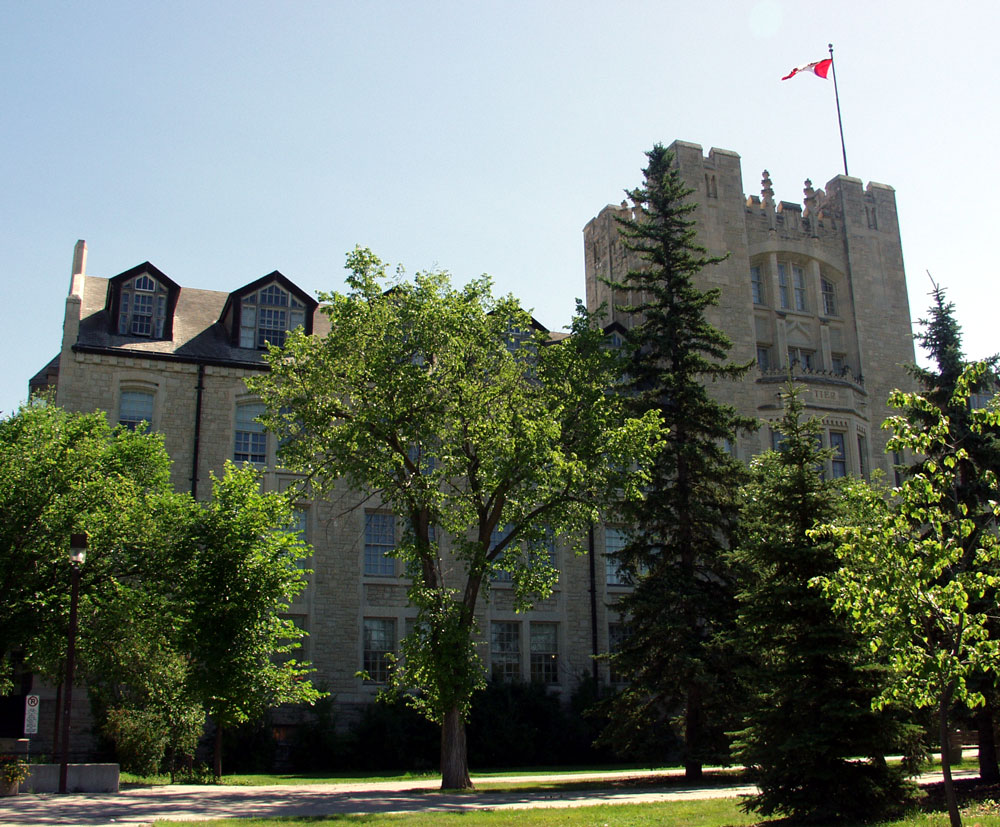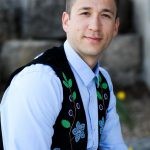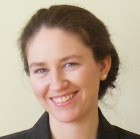
New Faculty in Arts
The Faculty of Arts welcomes several new members of faculty with appointments beginning July 1, 2018.
Promoted to Assistant Professor

Dr. Dallas Hunt
Dallas Hunt joined the department of Native Studies in 2017 as a Lecturer and, following successful defense of his PhD last fall, was promoted to the rank of Assistant Professor. Dr. Hunt is Cree and a member of Wapisewsipi (Swan River First Nation) in Treaty 8 territory in Northern Alberta. He holds a PhD from the Department of English at the University of British Columbia, as well as an MA in Critical Theory and Cultural Studies from McMaster University and a BA (Hons.) from the Department of English at the University of Alberta. He has had creative and critical work published in The Fieldstone Review, Decolonization: Indigeneity Education & Society, and Settler Colonial Studies. His work looks at the intersections of Indigenous studies, urban studies and Indigenous literature. Hunt’s research benefits from Winnipeg’s location, being the largest urban Indigenous population in Canada, as well as provides multiple opportunities to engage in the city’s vibrant literary and arts scenes.
New members of faculty

Dr. Réal Carrière
Réal Carrière joins the Department of Political Studies as Assistant Professor. He is Nehinuw (Cree) from Cumberland House, Saskatchewan. He grew up on the land – home-schooled, no road access, running water or electricity. He successfully defended his dissertation in May 2018 and his research focus is on Indigenous political theories and practices, specifically of the Nehinuw people. Dr. Carrière has presented his work at numerous conferences around the world. He previously held positions at the University of Saskatchewan in Political and Indigenous Studies. His teaching is currently focused on Canadian Government and Indigenous Governance and he is working on a research grant to continue his doctoral research in Northern Saskatchewan and Manitoba.

Katrina Dunn
Katrina Dunn joins the Department of English, Theatre, Film & Media as a Lecturer and Theatre specialist. She received her BFA in Theatre from Simon Fraser University and did her graduate work at the University of British Columbia. In between her undergraduate degree and her graduate studies, Dunn distinguished herself as a professional stage director, producer and dramaturg in Canadian theatre, basing herself out of Vancouver. She was the Artistic Director of Touchstone Theatre for nineteen years and co-founded Vancouver’s PuSh International Performing Arts Festival, now a significant player in Canada’s Arts and Culture scene. She has directed over seventy professional plays, most of those Canadian. Her scholarly work explores the spatial manifestations of theatre. Her MA thesis looked at performance in rural space, documenting and analyzing plays and modes of production at Canada’s four professional farm theatres. Her doctoral project looks at three spaces of large performance in the downtown core of Vancouver. It charts how they reflect the economic flows of capital and property in the city since 1950, and how they impact local urban and cultural landscapes. At UBC, she was the recipient of the Errol Durbach Graduate Scholarship, The Mary Ellen Henley Award, and the Heather McCallum Award. In addition to seven nominations and two wins for Outstanding Direction of a Play at Vancouver’s Jessie Richardson Theatre Awards, Dunn has twice won the Robert G. Lawrence Prize for an Emerging Scholar from the Canadian Association for Theatre Research. Her papers have been published in Canadian Theatre Review and Performance Research.

Dr. Julia Gamble
Julia Gamble joins the Department of Anthropology as Assistant Professor in Biological / Physical Anthropology. Within the modern health context, more is being learned about how early life experiences can impact later life health. Early life ‘stress’ can influence susceptibility to cardiovascular disease, obesity, diabetes, cancer and a host of other chronic diseases. Dr. Gamble’s research looks at these questions from another angle, using the large number of skeletal remains available from past populations, specifically through the bioarchaeological analysis of dental enamel microstructures found in human remains. Her research takes an interdisciplinary approach. A current SSHRC Insight Development Grant project on ancient pathogen DNA in medieval Danish populations aims to identify some of the infectious diseases present in these populations beyond those we can see from skeletal changes. This includes the time period of Black Death, which had a significant impact on human populations and may still be impacting descendent groups today. The research looks at what diseases are present and how they changed over time, as well as whether certain immune factors were selected in the populations in relation to the Black Death epidemic. She is also working on a developing project that aims to reconstruct patterns of stress over time from archaeological caribou and to tie this in with modern patterns observed so that we might better contextualize what we are seeing in today’s herds. Her research has been published in the International Journal of Paleopathology and in the Journal of Archaeological Science: Reports. Dr. Gamble completed her PhD at the University of Manitoba in 2015, where her doctoral research was supported by the prestigious Vanier Canada Graduate Scholarship. She returns to UM from a position at the University of Toronto as an Assistant Professor (Teaching Stream), bringing extensive instructional experience and an integrative approach to research and teaching.

Dr. Ryan Giuliano
Ryan Giuliano joins the Psychology Department as Assistant Professor in Developmental Psychology. He completed his PhD in Psychology at the University of Oregon in 2017, with a focus in Developmental Cognitive Neuroscience. Before joining the University of Manitoba, he completed post-doctoral research at the Prevention Science Institute at the University of Oregon, where he maintains collaborations with multiple groups examining family-focused interventions aiming to improve healthy parent-child interactions. Dr. Giuliano’s research examines the effects of poverty and other stressful life experiences on brain function in young children and adults, utilizing electroencephalography (EEG) measures and various biomarkers of a person’s physiological responses to psychological stress. His most recent findings suggest that early chaotic environments lead to deficits in a child’s ability to filter out distracting sounds, and that alterations in brain development are driven by early changes in stress physiology. His ongoing work aims to identify physiological and behavioural patterns in children and families resilient to chronic and acute stressors. At UM, he is starting the Hearts and Minds Lab with Co-Investigator Dr. Leslie E. Roos.

Jesse Hajer
Jesse Hajer joins the Department of Economics and Labour Studies program as a Lecturer. He is a University of Manitoba alumnus, having completed his MA in Economics, and undertook his PhD studies at the the New School for Social Research in New York. Jesse spent several years with the Government of Manitoba leading initiatives in areas including community economic development, education and training and poverty reduction. His broad research interests lie in examining the political economy of publicly-funded service delivery in advanced economies, its evolution over time and its impact on socioeconomic inequality and the precariousness of work. Within this framework he is focused on the analysis of privatization and its variants, and the alternative public policy responses being generated from labour and community movements.

Dr. Nancy Kang
Nancy Kang is an Assistant Professor in the Women’s and Gender Studies program. She comes to the University of Manitoba having served as Assistant Professor of Multicultural and Diaspora Literatures at the University of Baltimore, where she earned tenure and promotion in 2018. Dr. Kang was formerly Visiting Assistant Professor of World Literatures at Clarkson University and Postdoctoral Faculty Fellow in the Humanities at Syracuse University. She earned her Honors BA from the University of Calgary, her MA from Queen’s University, and her PhD from the University of Toronto. A recipient of SSHRC funding, the Chancellor Jackman Research Fund, the Alberta Heritage Fund, and others, Dr. Kang’s scholarship has appeared in such journals as LIT: Literature Interpretation Theory, Canadian Literature, Women’s Studies, African American Review, Callaloo: A Journal of African Diaspora Arts and Letters, MELUS Journal, and Latino Studies. Her co-edited film studies collection The Culture and Philosophy of Ridley Scott (with Adam Barkman and Ashley Barkman) was released in 2013. She is co-author, with Silvio Torres-Saillant, of the recent book The Once and Future Muse: The Poetry and Poetics of Rhina P. Espaillat (2018). Dr. Kang’s current research examines narratives of alternative mothering, interracialism and forms of violence against North American women of colour.

Dr. Adam Murray
Adam Murray joins the Department of Philosophy as an Assistant Professor. He received a BA in Political Science from the University of Winnipeg, and a Masters degree in Philosophy from the University of Manitoba, before completing his PhD in Philosophy at the University of Toronto. His research has been published in Oxford Studies in Metaphysics and the Canadian Journal of Philosophy, and he has forthcoming papers in The Routledge Handbook of Modality and The Routledge Handbook of Propositions. His primary research interests lie in the intersection of metaphysics, logic and the philosophy of language. He is currently exploring the argument that whether or not a given state of affairs is genuinely possible is a matter that depends upon the salient features of the context in which that question is considered. For example, expressions like `tall’ or `smart’ are unique in the sense that the truth or falsity of sentences they are used in seems to depend upon the context in which those sentences are used. Thus, if one says in an everyday situation that Donald Trump is tall, it is reasonable to think that what one has said is true (after all, Trump’s height is considerably above average). But now, consider saying that Trump is tall in a conversation discussing the height of each member of the Chicago Bulls basketball team. In that situation, it seems like one has spoken falsely (after all, Trump is considerably shorter than the average Chicago Bulls player). This shows us that `tall’, and many other expressions like it, has a meaning that is sensitive to features of the context in which it is being used. Dr. Murray’s research extends these lessons from the philosophy of language to the metaphysics of modality, the study of the nature and structure of possibility and necessity.

Dr. Leslie E. Roos
Leslie E. Roos joins the Department of Psychology as Assistant Professor. She received her PhD in Clinical Psychology from the University of Oregon following a clinical residency at the Centre for Addiction and Mental Health in Toronto. Dr. Roos studies how early life stress puts children at-risk for altered biological and behavioral development which can influence underlying mental health and achievement inequities. In her intervention research, she investigates how programs promoting parent mental health and positive parenting practices can encourage healthy child development and disrupt the intergenerational transmission of chronic stress. This work is approached from a prevention science framework; supporting families of young children during sensitive periods of rapid development may be particularly helpful for preventing the onset of future challenges. At UM, she is starting the Hearts and Minds Lab with Co-Investigator Dr. Ryan Giuliano.

Dr. Soodeh Saberian
Soodeh Saberian joins the Department of Economics as an Assistant Professor. Dr. Saberian received her second Masters degree in 2012 and PhD in Economics from University of Ottawa in May 2018. Her research interests span behavioral and environmental economics, applied econometrics and industrial organization. Recent economic studies point to the impact of environmental factors such as air pollution and temperature on health and non-health outcomes. She is currently working on two projects in this area: 1) in India, investigating the effect of hot days on the ability to work and 2) estimating the effect of air pollution on education outcomes using a natural experiment in Iran. Her work seeks to find a causal link between mental health and environmental factors helping to broaden the way in which policy makers perceive and measure the benefits of good air quality as they evaluate the cost-benefit analysis of environmental regulations. Dr. Saberian has had opportunities to work on several projects with scholars from University of Ottawa, Columbia University, University of California (UC Davis) and Harvard University. She has published papers in prestigious journals such as American Economic Journal (AEJ).






